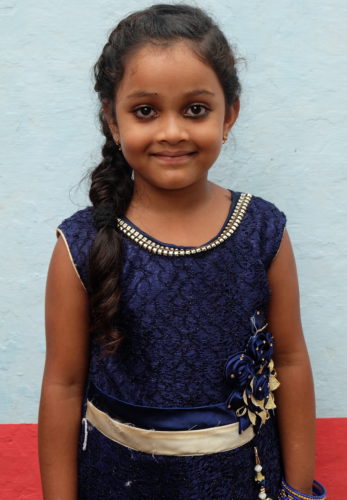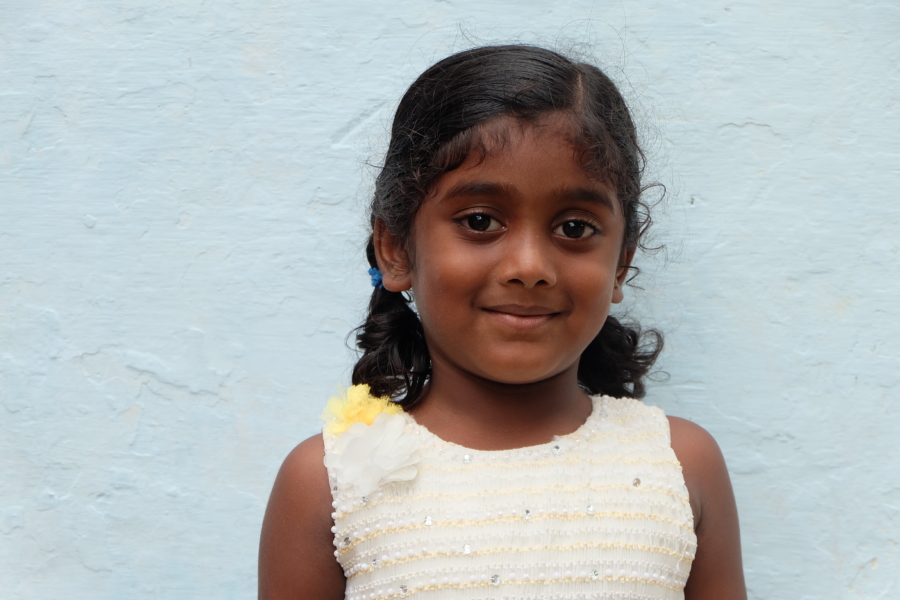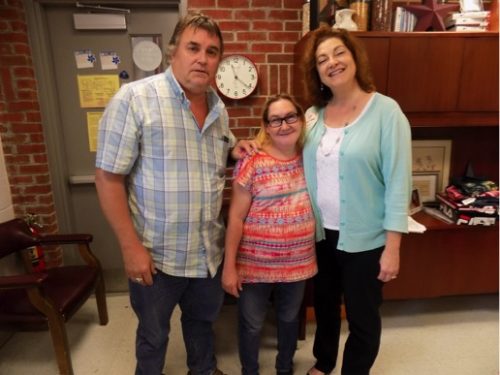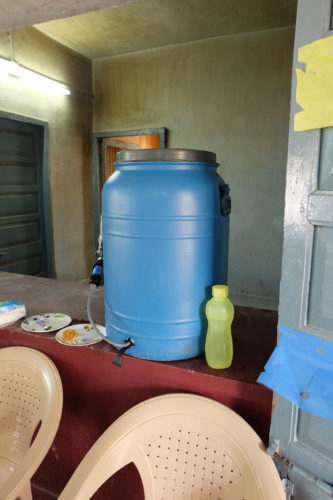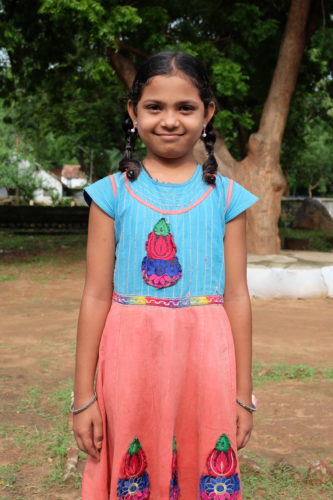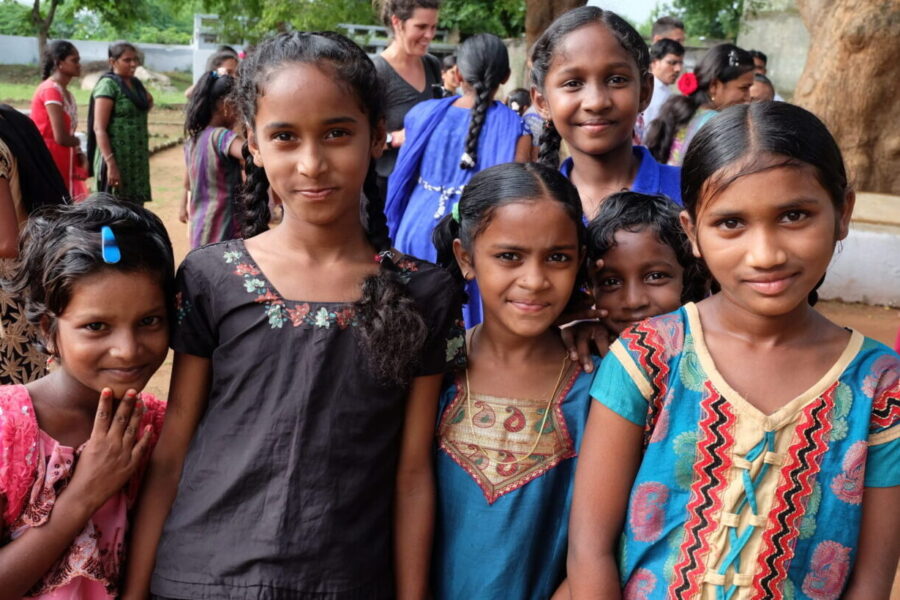We couldn’t do what we do without the help of our partners. At every one of our projects, whether it is an orphanage in South Korea, a community center in Costa Rica, or a school in New Mexico, without our affiliated projects or the volunteer coordinators who oversee our program at each location, we would not be able to provide support for some of the poorest children in the world. One of our most important partnerships here in the United States is with the Family Resource and Youth Services Centers (FRYSC) in Kentucky, where we have 2,294 sponsored and unsponsored children currently enrolled in our program.
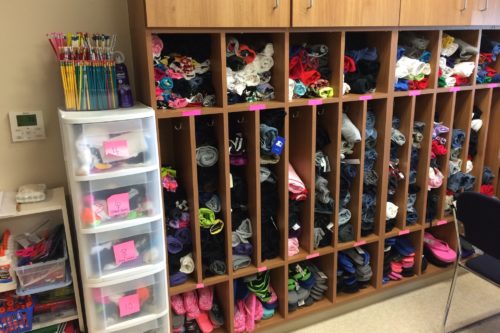
The Family Resource Center at Owingsville Elementary School is stocked full of supplies for students.
The Family Resource and Youth Services Centers were established as a component of the historic Kentucky Education Reform Act (KERA) of 1990. The mission of these school-based centers is to help academically at-risk students succeed in school by attempting to minimize or eliminate barriers to their learning – a similar mission to our own here at Children Incorporated: we strive to give impoverished kids the basic necessities they need in life so that they can go to school and learn. Schools where at least twenty percent of the student population is eligible for free or reduced school meals can receive FRYSC funding, which means that many schools in Eastern Kentucky, where some of the poorest counties in the U.S. are located, qualify.
Each of our affiliated schools in Eastern Kentucky has their own FRYSC in a separate and private room for students to go to confidentially, without embarrassment, when they need clothes, shoes, school supplies, hygiene items, or food to take home after school. Each center coordinator, who works full-time to offer support to every child at the school, also serves as the Children Incorporated volunteer coordinator in the schools with which we affiliate in Kentucky. The centers have established a record of success based on improved student performance on class work and homework, as well as healthier peer relations, according to research conducted by the state. Parents also benefit from the assistance they receive through nutrition and parenting classes, holiday meals, and even emotional support from coordinators when they need to talk about the daily struggles of living in poverty.
Without our affiliated projects or the volunteer coordinators who oversee our program at each location, we would not be able to provide support for some of the poorest children in the world.
The evolution of helping in the community
Owingsville Elementary School was one of the first schools in Eastern Kentucky to receive its Family Resource and Youth Services Center, which has been ably run since 1992 by Michele, our volunteer coordinator, along with her assistant, Barbara. Michele said that when the centers were first established, many included a component for a daycare that was run by the school. Over the years, however, as the needs of the community evolved and resources became scarcer, many schools have closed their daycare centers.
Owingsville Elementary School has kept this service in place for its families, though. Michele works very closely with the Daycare Director, Willie Mae, who has maintained this position for over 25 years – and on a shoestring budget. Michele and Willie Mae collaborate on many outreach efforts, such as home visits. In this way, Michele can get to know the parents and guardians of the youngest children, who will eventually become school children served by the FRYSC.
On a recent visit to Owingsville Elementary School, our Director of U.S. Programs, Renée Kube, met with Michele, who showed her around the resource center. Michele had set up a shoe and clothes closet, as well as a food pantry. She explained that there are two retired sisters who are former county administrators that hold food drives at their churches and through their other contacts. These sisters take food to the center on a regular basis, and every Friday, Michele sends small bags of food home with kids who otherwise might not eat on the weekends.
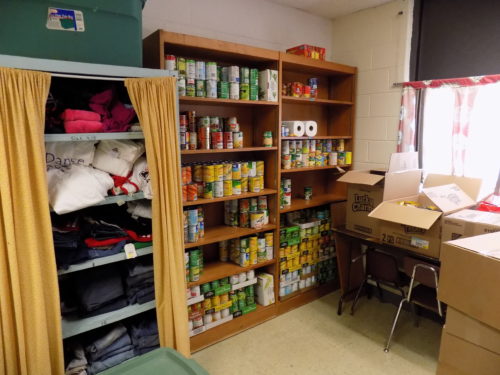
Food is just as important for children as clothes, shoes, and school supplies.
Michele said that the greatest need at the FRYSC includes ongoing help with food; hygiene items, which include buckets and mops for home visits; and additional funds for her collaboration with a special program through Morehead State University and AmeriCorps called “Build-A-Bed,” which helps families who do not have enough beds, or any beds at all, in their homes. With additional support, Michele feels that she could do a lot more; but she told Renée that she is incredibly grateful for our sponsorship program – for what it does not only for the children, but also for the entire community.
Kids who love their sponsors
After Renée met with Michele at the resource center, they took a tour of the school, where Renée had the opportunity to meet some of our sponsored children. Michele introduced Renée to Courtney*, whose sponsor, Robert, had recently sent her a package with pretty, new clothes. Courtney, who is in the fifth grade this year, was so happy with her gifts because they made her feel special. What’s more, the gifts really helped her and her family. Courtney’s parents both work; her dad installs drywall when construction work is available to him – but it is not regular, steady employment. Her mom works at a fast-food restaurant, but only part-time. Their wages are low, and they receive no benefits.
Afterwards, Renée met Melanie*, an adorable and outgoing little girl. Melanie and her brother and sister are being raised by their grandparents, who are disabled and can no longer work. They depend on social services assistance to care for their grandchildren, but they struggle with the everyday expenses involved in raising rapidly-growing kids. Michele said that Melanie visits the FRYSC almost every day. As a second-grader, Melanie loves having a sponsor who has been part of her life since kindergarten. Her sponsor’s support is helping her to be a healthy and happy child who is able to do her best in school.
Lastly, Renée met Connor*, who had also just received a package from his sponsor, making him incredibly happy. Connor is an active first-grader who lives with his parents and three siblings. His parents are among the families who are trying to stay in their community, so they work on small farms, because all the other jobs around them have disappeared. They don’t have much land, and they try to maintain a few beef cows and a little tobacco. Their income is very low. Thankfully, however, Connor, along with our other sponsored and unsponsored children at our 87 affiliated schools in Kentucky, have the Family Resource and Youth Services Center to rely on, as well as our wonderful volunteer coordinators, like Michele, to help them get what they need.
*Names changed for children’s protection.
***
HOW DO I SPONSOR A CHILD IN KENTUCKY?
You can sponsor a child in Kentucky in one of two ways: call our office at 1-800-538-5381 and speak with one of our staff members, or email us at sponsorship@children-inc.org.

